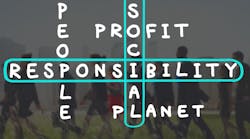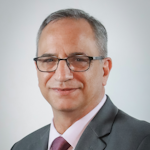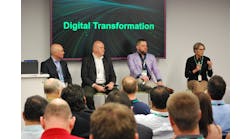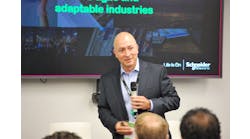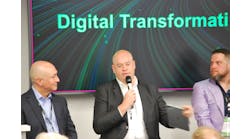Creating the right environment for ‘responsible profitability’
What is the future of process automation? One concept put forth during the recent Schneider Electric user group forum in Foxboro, Mass., is called “responsible profitability.” In an age of environmental, social, and corporate governance (ESG) mandates, companies are not only looking to be profitable, but also responsible.
There’s no doubt technology, particularly automation, plays a vital role in the march toward responsible business. While artificial intelligence and machine learning garner headlines these days—and they are certainly valuable to responsible plant operations—they are just part of the solution. More broadly, the pursuit of open systems, interoperability and democratized solutions are central to reimagining process automation and steering new control concepts toward the new business expectations.
As Michael Martinez, EcoStruxure Foxboro DCS global leader at Schneider Electric, asked at the user forum, “How do we start to leverage technology to enable us to achieve those outcomes beyond profitability? How do we think differently about our expectations?”
Reimagining process automation means diving deeper into the why and how of each step of operations. For example, Martinez said it’s not just about moving a valve anymore, but why the valve is moved and how it is moved. Engineers will need to consider the force of the valve and the energy that is used to move the valve, among other metrics.
“[Responsible profitability] is about getting away from using things that might not be good for the environment,” Martinez added.
Schneider Electric’s ExoStruxure Automation Expert software has been around since 2020. The company bills it as a single, integrated development environment, and Martinez said it makes the company’s EcoStruxure platform a more effective solution. The platform is an IoT-enabled, plug-and-play, open, interoperable architecture and platform. It is also the heart of Schneider Electric’s efforts to help end users think differently about process automation and to engage in more responsible operations.
“When we originally talked about [EcoStruxure], customers would ask me, does that mean that I can buy any of these products and any of these software applications from Schneider Electric and they all work together? That was the vision,” he said. “That vision is becoming a reality today with EcoStruxure Automation. One single, integrated development environment that allows us to create applications that can run on all these devices.”
With EcoStruxure a reality, the company went even further. UniversalAutomation.org is a third-party nonprofit organization with several member companies, including Schneider Electric and additional vendors, end users and educational institutions. “This is what we believe is creating that platform of the future, that runtime of the future, that's going to allow us to create products that can all be incorporated,” he said of the organization.
Collaboration is vital to reimagining automation for responsible profitability. “It's going to be a challenge, but I honestly believe that in order for us to meet the expectations that industry and people have of us moving into the future, we can't scale what we have today,” Martinez continued. “We can't do more of what we do today. This is where we run into these boundaries as we start to talk about sustainability and availability of resources. We must think differently. We must reimagine automation.”
